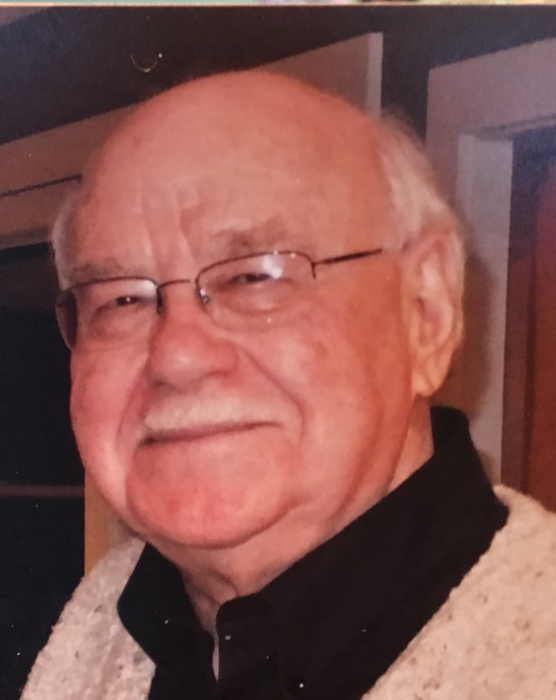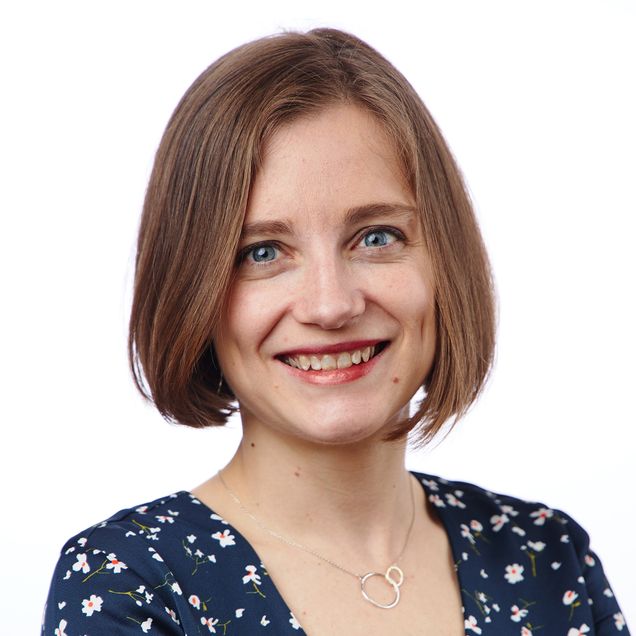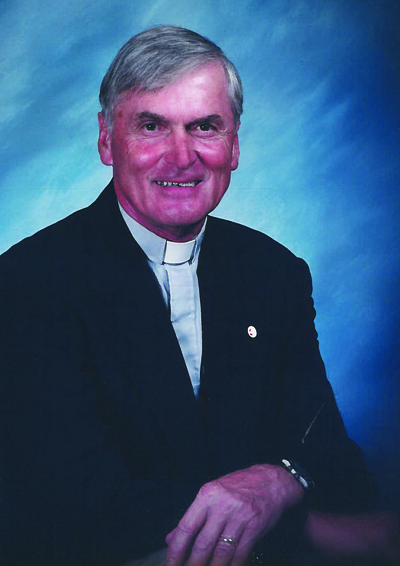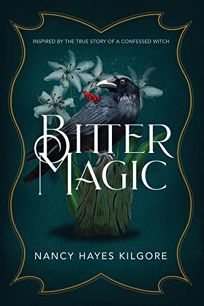Alumni News
Rev. Mariama White-Hammond (STH’17) Named the Next Chief of Energy and Environment for City of Boston
This article was originally published by the The City of Boston, on April 26, 2021, and the full press release can be found here.
Mayor Kim Janey today announced that she has appointed Reverend Mariama White-Hammond as Chief of Environment, Energy, and Open Space for the City of Boston. In this role, Rev. White-Hammond will be responsible for leading the Cabinet in achieving its mission of enhancing environmental justice and quality of life in Boston by protecting air, water, climate, and land resources, as well as preserving and improving the integrity of Boston's architectural and historic resources. The Reverend will assume the role previously held by Chris Cook, who has been named the next Executive Director of The Rose Kennedy Greenway Conservancy.
Reverend Dean E. Tegeler (STH ’71)
 Reverend Dean Elton Tegeler, of Weymouth and Hingham, Massachusetts, died on Friday, August 25, 2017.
Reverend Dean Elton Tegeler, of Weymouth and Hingham, Massachusetts, died on Friday, August 25, 2017.
He was born on December 10, 1928, in Battle Creek, Nebraska to Walter and Caroline, and lived his early years during the Depression and the Dust Bowl on his parents' farm in Battle Creek. At age 13, Dean left home to study for the ministry, first at Concordia Prep School in Milwaukee, Wisconsin, then at Concordia Seminary in St. Louis, Missouri. He was ordained in July 1954 in Columbia, South Carolina at Holy Trinity Lutheran Church. After several years as a minister in South Carolina, Dean and his wife Marie moved to St. John's Lutheran Church in South Weymouth in January 1961 (St. John's later merged with Lutheran Church of the Cross in Hanover and House of Prayer Lutheran Church in Hingham).
Active in social issues during the 1960s and 70s, Dean served as chairman of the board of South Shore Mental Health in the early 1970s, and then served as Executive Director of South Shore Day Care Services from 1975 to 1989. He also earned his MS in Divinity from Boston University. In 1991, Dean returned to ministry at Christ Lutheran Church in Scituate. He retired in 2003, but continued to serve as a visiting pastor on the South Shore until 2011.
Throughout his career, Dean had the pleasure of officiating at many weddings of family members and friends. Among his outside interests was a lifelong love of music, and for many years he performed as a member of the Fine Arts Chorale. Dean is survived by his loving wife of 63 years, Marie Delventhal Tegeler, his children Philip and his wife Anne Goldstein, Christine and her husband David Beneman, and David and his wife Nancy, and nine grandchildren: Dorothy & Alec, Nathan; Sara, Lisa, and Katy; and Caroline, Andrew and Jane. He will be deeply mourned by his family and many friends.
A Memorial service will be held at House of Prayer Lutheran Church, 916 Main Street, Hingham, at 11:00 am, on Saturday, September 9, 2017.
In lieu of flowers the family asks that you send donations in Dean’s name to House of Prayer Lutheran Church, 916 Main Street Hingham, MA 02043 or the Benevolent Care Fund at Linden Ponds in Hingham.
This obituary was originally posted at Downing Cottage Funeral Chapel.
Prof. Nicolette Manglos-Weber Featured in Sociology of Religion Journal Podcast
Assistant Professor of Religion and Society Nicolette Manglos-Weber was featured on the April 22, 2021 podcast published by the Sociology of Religion Journal to discuss her new research work on global faith communities in the African diaspora, and lived religion and social welfare. In this podcast, she discusses her recent article The Contexts of Spiritual Seeking: How Ghanaians in the United States Navigate Changing Normative Conditions of Religious Belief and Practice, published by the Sociology of Religion Journal in February 2021. 
Her article relates to her larger research project, and her interest on the rise of pentecostalism and evangelicalism in Africa. “I was very interested in the potential for Pentecostal conversion to impact things like social class arrangements, social networks, and also inter-ethnic group relationships, which is a really prevalent and important political issue in places like Ghana. But as I started to explore the diasporic expressions of this organization, particularly in Chicago, I became more and more interested in how these forms of West African evangelicalism shaped immigrant trajectories, particularly immigrants in the North American context,” Prof. Manglos-Weber offers. But the driving question behind her research work, she says, became “How do these new arrivals from Ghana and other countries of West Africa decide where to go to church?”
Reverend Joseph A. DeGroote (STH ’64)
 Reverend Joseph A. De Groote, 83, of Vero Beach, FL passed away on March 29, 2021. He was born in New York state. He attended high school at Onondaga Valley Academy and earned his Bachelor of Science at SUNY Cortland. He next attended Seminary at Boston University, receiving his Master of Sacred Theology. Joseph served churches in Central New York including McGraw, Delphi Falls, and Auburn.
Reverend Joseph A. De Groote, 83, of Vero Beach, FL passed away on March 29, 2021. He was born in New York state. He attended high school at Onondaga Valley Academy and earned his Bachelor of Science at SUNY Cortland. He next attended Seminary at Boston University, receiving his Master of Sacred Theology. Joseph served churches in Central New York including McGraw, Delphi Falls, and Auburn.
In 1970 he embarked on a second career with the YMCA. Joseph was asked to be Physical Director of the Malden, Massachusetts Y which led to being Fitness Director of the Cambridge Y. Later he became Camp Director of Camp Fuller in Providence, RI. Following Camp Fuller, he became the Executive Director of the Armed Services Y in Newport, RI. for six years. After a short time in Passiac-Clifton, NJ, he then served as Executive Director at the Fulton Y in upstate New York.
In 1992 he returned to the ministry, serving Methodist churches in Clayton, Depauville and Grindstone Island. While in Clayton, he also served as president of the Lions Club and played in both the regular and senior golf leagues at the C-Way. He married Tonia in 1994. Upon retiring in 2000, Joseph and Tonia became residents of Florida.
Joseph was very active in retirement. He was a visiting Pastor for the St. Augustine of Canterbury Episcopal Church and a volunteer chaplain at the Indian River Medical Center. He enjoyed playing baseball with the Codgers and golf with the Vista Plantation golf league. For three years he led a team of ushers at Riverside Theater. In 2003, he and Tonia joined the C.B. Willis Chapter of the YMCA Alumni and served as co-presidents from 2014 to 2016.
Joseph’s biggest love was ballroom dancing – he even taught a few classes up north. He greatly enjoyed the outdoors, fishing, sailing and his annual hunting trips on Grindstone Island. He could often be found in his workshop – with many a household project or building his HO model train layout. He was a member of the Vero Beach Model Railroaders.
He is survived by his wife, Tonia; son Stephen and daughter Joanne (Fred), granddaughter Cate; stepdaughter Lisa, grandsons Nick and Jack; stepson Michael (Michelle), grandsons Ted, Zach and Gabe; siblings Peter; Martha; Margaret. Preceded in death by half-brother Robert and sister Mary; as well as many nieces, nephews, and cousins. Also survived by his former wife, Patricia.
A Celebration of Life Service will be held at St. Augustine of Canterbury Episcopal Church on April 17th at 1:00. The use of social distancing and masks will be followed. Please call the church office at 772-770-3494 to make a reservation for seating. In lieu of flowers, donations may be made to the music department at St. Augustine of Canterbury Episcopal Church, 475 43rd Avenue, Vero Beach, FL 32968.
Please leave a condolence for the family, or share a memory of Joseph.
To send a flower arrangement or to plant trees in memory of Reverend Joseph Anthony DeGroote, please click here to visit our Sympathy Store.
This obituary was originally published here, by Cox Gifford Sea Winds.
Dr. Yara González-Justiniano (STH ’14 & ’19) accepts a position at Vanderbilt Divinity School
This article was originally published by Vanderbilt, written by Evan Curran on April 14, 2021, and can be found here.
Divinity School welcomes new faculty focused on Latinx studies
Vanderbilt Divinity School has announced the hiring of Yara González-Justiniano, assistant professor of religion, psychology and culture. González-Justiniano, who will focus on Latinx studies, brings a wealth of experience in theological and cultural study and nonprofit program leadership.
“We are excited to have Professor González-Justiniano join our faculty,” said Emilie Townes, dean of the Divinity School and distinguished professor of womanist ethics and society. “She brings wonderful energy and passion in all she does, and we look forward to working with her to grow a strong Latinx program that will make a positive impact on our students, faculty and the church.”
González-Justiniano has served as the national director of the Raíces Latinas Leadership Institute, where she managed leadership development programming and served as an academic adviser to participants. She also served as assistant director and senior program coordinator in the Office of Contextual Education and Community Partnerships at Boston University School of Theology. Most recently, González-Justiniano was the visiting assistant professor in practical theology and community engagement at Garrett-Evangelical Theological Seminary. She received a bachelor of arts at the University of Puerto Rico, and a master’s in divinity and doctorate in theology at Boston University School of Theology.
Fellow Divinity School faculty believe the appointment of González-Justiniano will provide an important perspective on the intersection of culture and theology and offer enriching learning opportunities for students.
“I could not be more excited to have Dr. González-Justiniano join Vanderbilt Divinity School and the Graduate Department of Religion,” said Phillis Isabella Sheppard, E. Rhodes and Leona B. Carpenter Associate Professor of Religion, Psychology, and Culture. “Professor González-Justiniano is a practical theologian who brings a contextual and decolonial approach to her research and pedagogical commitments and, in so doing, advances the aims of the discipline and Vanderbilt.”
“The appointment of Professor González-Justiniano signals a new day for Vanderbilt Divinity School,” said John McClure, Charles G. Finney Professor of Homiletics. “Her research into the deep and abiding hope of many in the face of Puerto Rico’s political and economic crisis, her interest in scholar-activism in pursuit of justice, and her ability to connect deeply with our Latinx students as friend and mentor make her a wonderful addition to our faculty.”
Alumna Dr. Nancy Hayes Kilgore (STH ’93) authors Bitter Magic
The full press release was originally published: Bitter Magic press release

BITTER MAGIC
a novel
by Nancy Hayes Kilgore
Nancy Hayes Kilgore’s powerful new novel, BITTER MAGIC (Milford House, an imprint of Sunbury Press, pub. date August 10th), is based on the life of Isobel Gowdie, who confessed to witchcraft in Scotland in 1662. During this time, witches were burned at the stake, but the historical record is inconclusive about what actually happened to Gowdie. Kilgore’s story springs from that silence to imagine what Gowdie’s fate might have been.
BITTER MAGIC is told by Isobel herself and also by Margaret Hay, a fictionalized seventeen-year-old noble woman. When Margaret stumbles across Isobel one day, it seems as though Isobel is commanding the dolphins in the ocean to jump. Margaret is enchanted. She becomes interested in Isobel’s magic, in fairies, and in herbal remedies; Isobel freely shares her knowledge. While Margaret worries that being around Isobel could be dangerous, she also respects Isobel’s medical successes and comes to believe that acknowledging the efficacy of herbal remedies or believing in fairies does not challenge her Christianity.
But Isobel believes in more than cheery fairies and herbal medicine. She has dark wishes as well, unknown to most people. Isobel seeks vengeance against the local lord who executed her mother for witchcraft. More important, Isobel’s trance experiences (or are they dreams?) lead her to confess to a wide range of sins, including consorting with the devil. Then, during her trial, Isobel names thirteen others, calling them all witches. To her great shock, Margaret hears her own name. Can her tutor, a Christian mystic named Katharine, save them?
In this gripping and beautifully written tale, Kilgore’s characters debate whether Gowdie is fantasizing or a real witch, and whether young Margaret and the others are complicit. But their debate soon expands to consider the effects of Isobel’s poverty, being powerless, and ultimately the very nature of faith and forgiveness.
To get your copy, BITTER MAGIC is currently available for pre-order at this link.
Author Stephen Finlan (STH ’13) recently published Salvation Not Purchased: Overcoming the Ransom Idea to Rediscover the Original Gospel Teaching
 Dr. Finlan notes that his book Salvation Not Purchased: Overcoming the Ransom Idea to Rediscover the Original Gospel Teaching (Cascade Books, 2020) "challenges the belief that God required payment in blood before salvation could be offered."
Dr. Finlan notes that his book Salvation Not Purchased: Overcoming the Ransom Idea to Rediscover the Original Gospel Teaching (Cascade Books, 2020) "challenges the belief that God required payment in blood before salvation could be offered."
“Passionately rejecting those aspects of traditional atonement theory that implicitly turn God into a severe, sacrifice-demanding Father, and instead, pointing out the biblical evidence that reveals the original teaching of Jesus as emphasizing a generous and merciful loving God, Stephen Finlan’s remarkable slim volume, Salvation Not Purchased, must absolutely be read and reflected on by all who preach and presume to teach others how to preach the Christian doctrine of salvation.” —Robert J. Daly, SJ, Boston College
To find out more and to get your copy, click here.
Dr. Ronald Angelo Johnson (STH ’06) recently named the 2021 American Philosophical Society’s Franklin Research Fellow
Congratulations to Dr. Ronald Angelo Johnson, who was recently named the 2021 American Philosophical Society’s (APS) Franklin Research Fellow at the Institute of Advanced Studies in the Humanities at the University of Edinburgh! In collaboration with the Institute for Advanced Studies in the Humanities (IASH) at the University of Edinburgh, the APS offers a visiting fellowship of between two and four months for research in Edinburgh in the calendar year 2021 in any aspect of the humanities and social sciences.

Opinion by Cornell William Brooks (STH ’87) on “The lessons of Beulah Mae Donald, the mother who took down the Klan”
This article was originally published by CNN on April 11, 2021, and the article can be found here.
America is transfixed and yet traumatized by the Derek Chauvin trial in the killing of George Floyd. As a nation, we've been here so many times before.
Racial disparities are so great in this country that police shootings are a leading cause of death among Black men. In 2014, a ProPublica analysis found that Black male teenagers are 21 times more likely than their White counterparts to be fatally shot by police.
Few officers are ever charged, let alone convicted. As human lives are reduced to hashtags in our Twitter feeds, Facebook pages and Instagram posts, our worried hearts wonder if justice is even possible.
But there is reason to believe that it is. As a professor of social justice advocacy and leadership, I have found inspiration in the stories of past leaders who have confronted racial injustice without wavering. These leaders and role models are not always people with titles like CEO, executive director, or president -- in fact, they often have titles like "activist," "citizen," or quite simply, "mother."
To continue reading this story, click here.
Dean Pak Addresses the Chauvin Trial Verdicts
April 21, 2021 
Dear Beloved Community,
Moments before the verdicts of the Derek Chauvin trial came in a little after 5pm ET yesterday, I found myself trembling, holding my breath, afraid, yet hopeful. Then the verdicts were announced, and I let out a long breath. Many of us have been holding our breath for weeks, months, almost a year. We get to breathe. George Floyd did not.
Moreover, it increasingly dawned on me that the very fear that the verdicts might be otherwise than what was announced is case in point of the problems we are facing. Justice was (thankfully) served with the guilty verdicts against Derek Chauvin, but there is a long road ahead of this nation in the work of establishing more just practices, more just structures, more just expectations, and more just systems.
And yet…just twenty minutes prior to the announcement of these guilty verdicts, another Black life was taken by a police officer. Sixteen-year-old Ma’Khia Bryant was shot four times in Columbus, OH at 4:35 pm yesterday. We still live in a world where fatal force is too often the customary response to instances involving Black and Brown bodies. Our hearts break for Ma’Khia Bryant’s family, friends, and community. Our bodies tremble with anger.
“...there is a long road ahead of this nation in the work of establishing more just practices, more just structures, more just expectations, and more just systems.”
We still live in a world where a young Black man gets shot because of the potential threat that he posed by trying to get back into his car because of his (apparently very correct) fear of the police. That a police officer can mistake a gun for a taser is simply unacceptable. Our hearts break for Daunte Wright’s family, friends, and community. Our bodies tremble with anger.
We still live in a world where a thirteen-year-old Brown boy gets shot by the police even when he is cooperating. Our hearts break for Adam Toledo’s family, friends, and community. Our bodies tremble with anger.
We still live in a world where the victims of these incidents get blamed because he had a misdemeanor on his record…because he ran away…because he had a heart condition…because they did not comply soon enough or in the right way...
I have two exhortations.
First, these verdicts are a hopeful step. It is that, even as there is a long, hard road ahead to foster lasting change. Hold on to hope.
Second, the exhaustion among Black and Brown communities is real, palpable, crushing. This is one of many reasons why cross-advocacy—advocacy across groups—is so essential. When one of us is down in the dirt, face crushed to the ground, others of us must speak up, bear witness, stand solidly in the role of advocate and ally. We cannot allow ourselves to be siloed; we cannot continue to think my cause is more important than another’s or that another’s injustice detracts attention from my own experience of injustice. Rather, compassion is all the more imperative—more than compassion, empathy. And more than empathy, there is the call to action and advocacy—advocacy on behalf of an ‘other,’ especially when exhaustion has overwhelmed them. Be a vessel of compassion. Embrace empathy. Take up the call of advocacy.
The School of Theology will be dedicating a series of lectures and workshops over the next two years to fostering behaviors of anti-racism, cross-advocacy, intersectionality, and solidarity as we look to name and address painful histories and steward practices for the flourishing and upholding of human dignity. This is just one faithful step in a much larger journey.
G. Sujin Pak, dean
